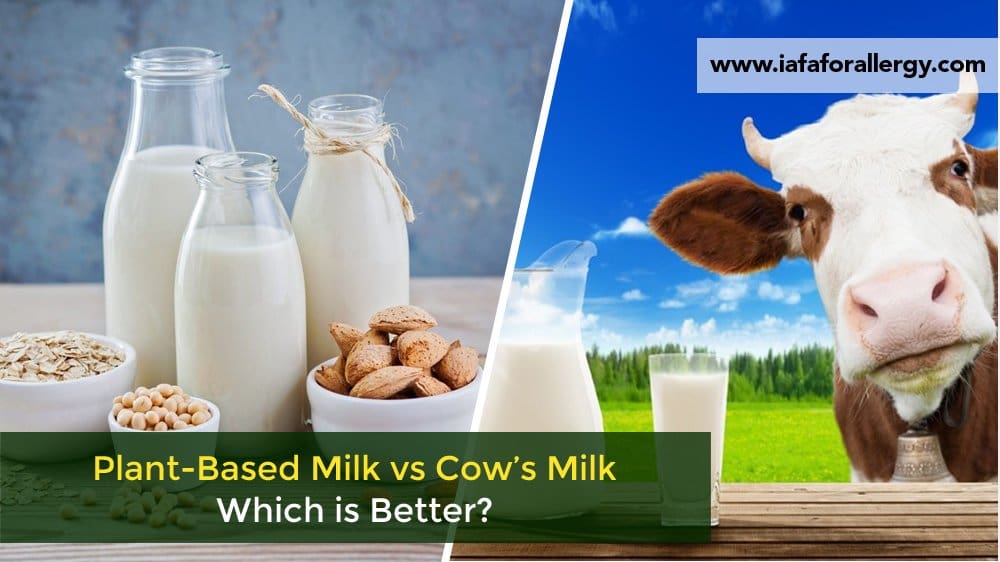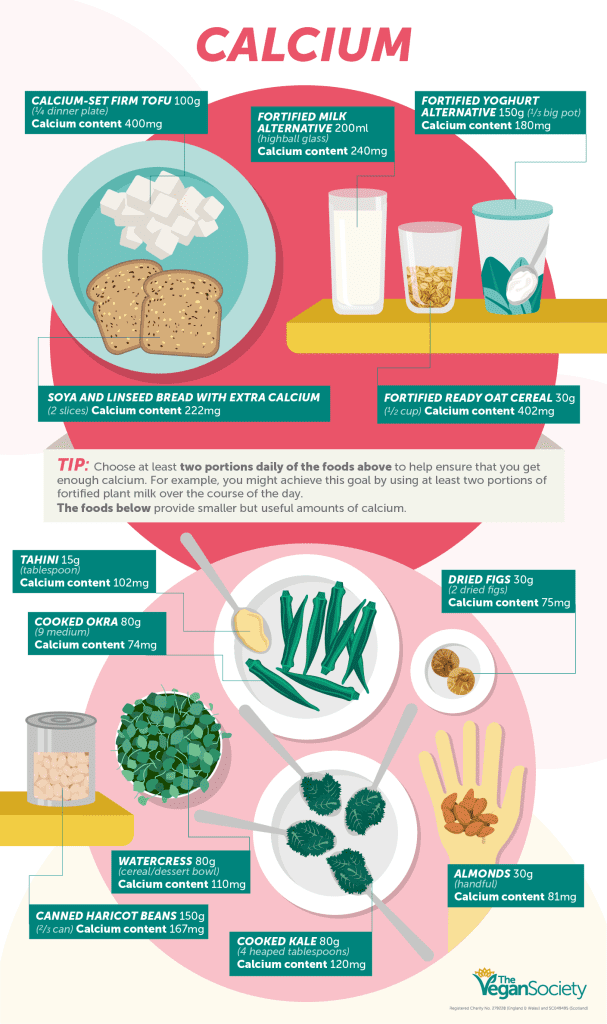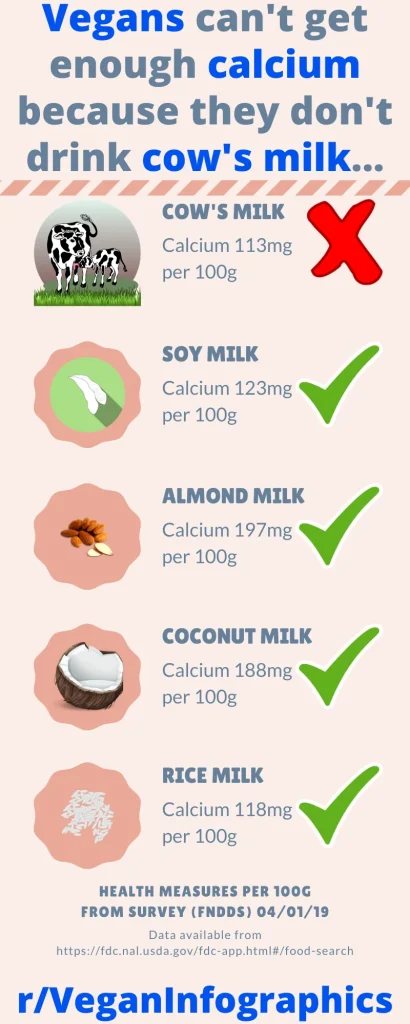In recent years, there has been a growing debate surrounding the consumption of dairy products and its impact on our health. For many years, dairy has been touted as an essential source of calcium and other vital nutrients. However, with the rise of plant-based diets and an increasing number of people turning to alternatives such as almond milk and soy yogurt, the traditional belief in the necessity of dairy has been challenged. This has led to a dilemma for many individuals who are trying to make informed decisions about their diet and overall well-being. Is dairy truly necessary for adequate calcium intake? Are plant-based alternatives just as beneficial, or even better? In this article, we will delve into the calcium myth surrounding dairy and explore the various plant-based alternatives available, their benefits, and potential drawbacks. By understanding the facts and science behind dairy and plant-based alternatives, readers will be equipped to make informed decisions when it comes to their dietary choices.

Calcium-rich plants to add to your diet
When it comes to meeting your daily calcium requirements, it’s essential to know that dairy products are not the only source available. There is a wide range of calcium-rich plants that can be incorporated into your diet to ensure you are getting an adequate intake of this important mineral. Leafy greens such as kale, collard greens, and spinach are excellent options, as they are not only rich in calcium but also packed with other essential nutrients. Additionally, legumes like chickpeas, black beans, and lentils offer a significant amount of calcium, making them a great plant-based alternative. Other plant-based sources of calcium include tofu, almonds, chia seeds, and fortified plant-based milk alternatives. By including these calcium-rich plants in your diet, you can easily meet your calcium needs while also enjoying a variety of delicious and nutritious foods.
Fact-checking the dairy industry
Fact-checking the dairy industry involves examining the claims and narratives surrounding the consumption of dairy products. While the industry promotes dairy as the primary source of calcium, it is important to recognize that this notion is a myth. There is a vast array of plant-based sources that provide ample amounts of calcium, debunking the idea that dairy is the only option. Additionally, it is crucial to address lactose intolerance and dairy allergies, as these conditions can significantly impact individuals’ ability to consume dairy products. By exploring the facts and alternatives, we can make informed choices about our dietary preferences and embrace plant-based options for calcium intake.
Understanding lactose intolerance
Lactose intolerance is a common digestive disorder that affects a significant portion of the population. It occurs when the body lacks the enzyme lactase, which is needed to break down lactose, the sugar found in milk and dairy products. Without enough lactase, lactose remains undigested in the digestive system, leading to symptoms such as bloating, diarrhea, and abdominal pain. It is important to note that lactose intolerance is different from a dairy allergy, which is an immune response to the proteins in milk rather than the lactose itself. Understanding lactose intolerance is crucial for individuals who experience these symptoms after consuming dairy products, as it allows them to make informed decisions about their diet and explore suitable alternatives to meet their nutritional needs.
Exploring plant-based milk options
When faced with lactose intolerance or dairy allergies, exploring plant-based milk options can provide a viable solution. Debunking the myth that dairy is the only source of calcium, this piece would provide information on plant-based sources of calcium and discuss lactose intolerance and dairy allergies. Plant-based milks, such as almond, soy, oat, and coconut milk, have gained popularity as dairy alternatives in recent years. These milk alternatives are often fortified with calcium and other essential nutrients, making them suitable replacements for traditional dairy products. Moreover, plant-based milks offer a variety of flavors and textures, allowing individuals to find a suitable option based on their personal preferences. By embracing these plant-based alternatives, individuals can still meet their calcium and nutritional needs without compromising their health or taste preferences.
The truth about dairy allergies
Dairy allergies are a common concern for many individuals, leading them to seek out alternative sources of calcium. It is important to understand that dairy is not the only source of this essential mineral. In fact, there are numerous plant-based foods that are rich in calcium and can be incorporated into a balanced diet. Leafy greens like kale and spinach, for example, are excellent sources of calcium. Additionally, foods such as tofu, almonds, and chia seeds are also great options. By diversifying one’s diet and including a variety of plant-based sources of calcium, individuals with dairy allergies can still ensure they are meeting their nutritional needs. It is crucial to consult with a healthcare professional or registered dietitian to ensure that all nutritional requirements are being met. By dispelling the myth that dairy is the sole source of calcium and embracing plant-based alternatives, individuals with dairy allergies can maintain a healthy and balanced diet.
Alternatives for cheese lovers
For cheese lovers who are seeking alternatives, there are a variety of plant-based options available that provide both flavor and texture reminiscent of traditional dairy cheese. One popular alternative is nut-based cheese, made from ingredients like cashews or almonds. These cheeses offer a creamy and rich taste, and can be found in a variety of flavors to suit different preferences. Another option is tofu-based cheese, which can be used in both savory and sweet dishes. Tofu-based cheese provides a mild and versatile taste, making it a great choice for those looking for a milder cheese flavor. Additionally, there are also vegetable-based cheeses, such as those made from cauliflower or zucchini, which offer a unique and lighter alternative. Exploring these plant-based alternatives can not only provide cheese lovers with satisfying options, but also support a dairy-free lifestyle for those with lactose intolerance or dairy allergies.
Calcium-fortified plant-based foods
In addition to plant-based alternatives for cheese, individuals seeking to boost their calcium intake can also turn to calcium-fortified plant-based foods. Many plant-based milk alternatives, such as almond milk, soy milk, and oat milk, are now fortified with calcium to provide a comparable amount to traditional dairy milk. These fortified milk alternatives can be used in cooking, baking, or enjoyed on their own as a beverage. Furthermore, other plant-based foods such as tofu, tempeh, and green leafy vegetables like kale and broccoli, naturally contain calcium. By incorporating a variety of these calcium-rich plant-based options into their diets, individuals can debunk the myth that dairy is the sole source of calcium and ensure they meet their nutritional needs, regardless of lactose intolerance or dairy allergies.
The problem with dairy subsidies
Dairy subsidies have long been a controversial topic within the agricultural industry. While the intention behind these subsidies is to support dairy farmers and ensure a stable supply of dairy products, there are several problems associated with this system. One issue is that these subsidies primarily benefit large-scale industrial dairy operations, rather than smaller, more sustainable farms. This perpetuates a concentration of power within the industry, limiting opportunities for smaller farmers to compete and thrive. Additionally, the heavy reliance on dairy subsidies hinders innovation and diversification in the agricultural sector. Instead of exploring alternative sources of calcium, such as plant-based options, the focus remains on promoting and maintaining the dairy industry. By reallocating these subsidies towards promoting sustainable farming practices and supporting a broader range of agricultural products, we can encourage a more balanced and environmentally friendly food system.
Debunking the calcium myth
The belief that dairy is the only source of calcium is a common misconception that needs to be debunked. While dairy products are indeed a rich source of calcium, they are by no means the only option available. Plant-based alternatives offer a variety of calcium-rich foods that can easily be incorporated into a balanced diet. Dark leafy greens like kale and spinach, tofu, sesame seeds, and almonds are just a few examples of plant-based sources of calcium. Moreover, for individuals who struggle with lactose intolerance or dairy allergies, relying solely on dairy for calcium intake can be problematic. It is essential to educate ourselves and explore the wide range of plant-based alternatives to ensure adequate calcium consumption and support overall health and well-being.

Navigating the dairy dilemma
When faced with the dairy dilemma, it is important to consider the available options and understand the misconceptions surrounding calcium intake. Many people believe that dairy is the only source of calcium, but this is far from the truth. Plant-based alternatives provide a wealth of calcium-rich foods that can easily be incorporated into a balanced diet. By exploring options such as fortified plant-based milk, calcium-fortified orange juice, and leafy greens like kale and broccoli, individuals can meet their calcium needs without relying solely on dairy. Moreover, for those who may experience lactose intolerance or dairy allergies, these plant-based alternatives offer a viable solution. By debunking the myth that dairy is the only source of calcium and exploring plant-based alternatives, individuals can effectively navigate the dairy dilemma and make informed choices for their health and well-being.
In conclusion, the idea that dairy is the only source of calcium and essential nutrients is a myth perpetuated by the dairy industry. With the rise of plant-based alternatives, individuals now have a variety of options for getting their daily dose of calcium and other vital nutrients without consuming dairy products. By educating ourselves on the true impact of dairy on our health and the environment, we can make more informed and conscious choices about our food consumption. Let’s embrace the diverse offerings of plant-based alternatives and take a step towards a healthier and more sustainable future.
















































